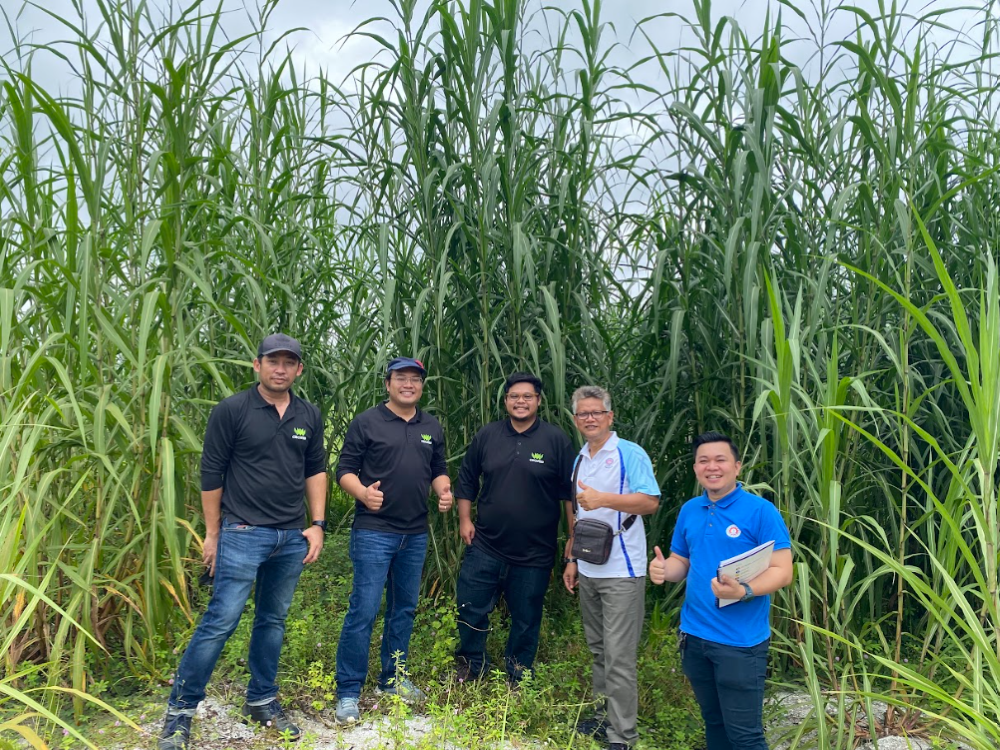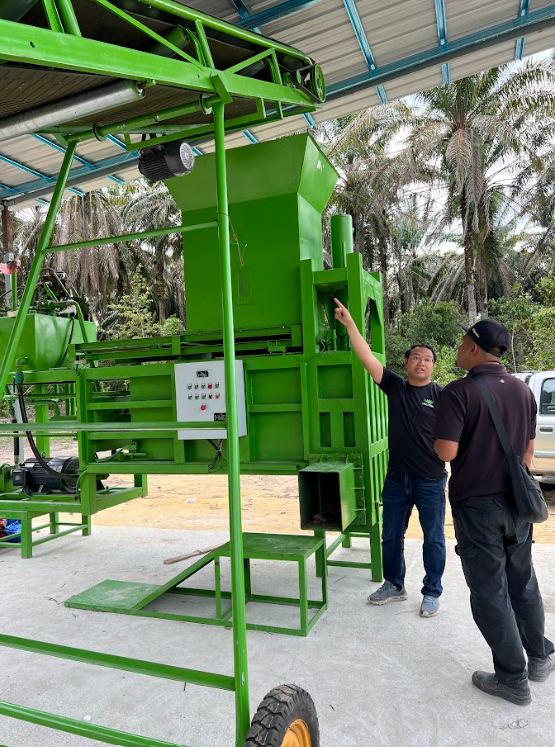Have you ever thought about what it takes to improve the quality of animal feedstock, enhance food security, and reduce the environmental impact of agriculture? The answer might be as simple as Napier grass.
Sounds intriguing, right? Let's dive into the fascinating world of Circafeed, the agrotechnology start-up changing the game with large-scale Napier farming and feedstock manufacturing.
Unveiling Napier Grass: Nature's Superstar
Napier grass, scientifically known as Pennisetum purpureum, is a hidden gem in the world of agriculture, comparable to nature's Swiss Army knife, delivering myriad benefits for both cattle farming and biofuel production.
“With a rapid growth rate and widespread availability, Napier grass outpaces conventional crops and stands out as an excellent candidate for various applications. Beyond its visual appeal, Napier grass plays a crucial role in biofuel production, particularly in bioethanol, serving as a superstar with its high carbohydrate content—an ideal solution for renewable energy needs,” said Danial Zamberi, CEO of Circafeed
Danial added on “Researchers, acknowledging its potential, have meticulously studied methods to optimise Napier grass for bioethanol production. The promising results enhance enzymatic saccharification and ethanol yield, establishing Napier grass as a key biofuel feedstock. This breakthrough places Napier grass at the forefront of sustainable agriculture and renewable energy, showcasing the seamless integration of ecological resilience and technological innovation.”

A key player in animal feedstock production, especially cattle farming, Napier grass serves as a dependable source of sustenance for livestock. Its appeal to farmers lies in its sustainability—a low-cost, eco-friendly option that aligns seamlessly with the principles of sustainable agriculture. Unlike other feed alternatives, Napier grass does not compete for crucial food and feed resources, but acts as a sustainable source, lessening the environmental footprint of livestock farming on our planet.
Circafeed: Leading the Charge
Aiming to put Napier grass in the spotlight, Circafeed is striving to showcase the remarkable potential of this sustainable resource, by embarking on large-scale Napier grass farming and feedstock manufacturing. The brand is on a mission to enhance feedstock quality, boost food security, and minimise the environmental footprint of agriculture.
The utilisation of modern genomic tools in Napier grass phenotyping and genotyping is propelling it to the next level. This cutting-edge approach enables researchers to achieve a more profound understanding of Napier grass, enhancing its role in sustainable agriculture.
It distinguishes itself in feedstock production for both cattle farming and biofuel creation, attributed to its impressive carbohydrate content. Researchers have been actively exploring methods to improve its efficiency for bioethanol production. Moreover, it serves as a cost-effective, environmentally friendly option for animal feed, solidifying its importance within the sustainable agriculture framework.
The Sizeable Market for Agrotechnology
But, how extensive is this Napier grass farming and feedstock production endeavour?

It is not just a niche, but a booming market with substantial growth potential. The current valuation of agrotechnology and biotechnology companies is soaring, drawing investors to this green revolution. Beyond immediate profits, the Napier grass and agrotechnology market offers abundant opportunities for sustainable advancements, from refining farming techniques to expanding applications.
In the end, Napier grass is a game-changer in the world of agriculture. It offers a sustainable, eco-friendly solution for both animal feedstock and biofuel production. With the innovation and dedication of companies like Circafeed, this market is poised for remarkable growth.
Danial elaborated further “So, the next time you enjoy a delicious meal or think about the energy that powers your world, remember the humble Napier grass and the companies like Circafeed that are transforming the future of agriculture. It's not just about farming; it's about sowing the seeds of a more sustainable and secure world.”
This article is provided by Elliot & Co.
The views expressed here are those of the author/contributor and do not necessarily represent the views of Malaysiakini.

